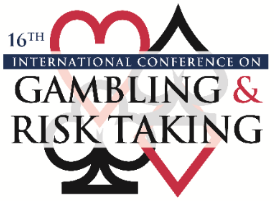Session Title
Session 2-1-G: Problem Gambling Treatment Stories and Outcomes
Presentation Type
Event
Location
The Mirage Hotel & Casino, Las Vegas, Nevada
Start Date
8-6-2016 8:30 AM
End Date
8-6-2016 10:00 AM
Disciplines
Substance Abuse and Addiction
Abstract
Recovery from gambling addiction, for those who received treatment, may be better understood in a follow up assessment. This study examines which of the factors (individual and environmental) may be associated with sustaining recovery after completion of treatment.
Using data collected for the Iowa Gambling Treatment Outcomes Report: 2014, there were 755 clients discharged from May 2012 to March 2015. Of these, 307 clients consented to be part of the 6 month post discharge follow-up study, and 141 participated in the follow-up assessment.
The demographic characteristics, discharge status (complete or incomplete treatment), and length of service for the 141 that completed the 6 month post-discharge assessment did not vary significantly between those who were admitted into services during the study period.
Past 30 day and Past 12 month DSM-5 diagnostic criteria for Disordered Gambling were gathered at Admission, Discharge, and 6 month post-discharge. Logistic regression was used to determine factors related to gambling disorder status (1 = “Disordered gambler”, and 0 = “No disordered gambler”). The independent variables measured were clients’ demographic characteristics, substance use, length of service (LOS), participation in Recovery Support Services (RSS), and participation in e-Therapy.
In the final model, females were 2.8 times more likely to be diagnosed as disordered gamblers 6 months after discharge than males. Those who received one or more RSS were 70% less likely to meet the criteria for a gambling disorder 6 months after discharge. Implications for treatment and discharge planning to assist clients sustain recovery will be discussed.
Keywords
Gambling Treatment, Recovery, e-Therapy, Discharge, Outcomes
Iowa Gambling Treatment Outcomes: Factors Influencing Recovery
The Mirage Hotel & Casino, Las Vegas, Nevada
Recovery from gambling addiction, for those who received treatment, may be better understood in a follow up assessment. This study examines which of the factors (individual and environmental) may be associated with sustaining recovery after completion of treatment.
Using data collected for the Iowa Gambling Treatment Outcomes Report: 2014, there were 755 clients discharged from May 2012 to March 2015. Of these, 307 clients consented to be part of the 6 month post discharge follow-up study, and 141 participated in the follow-up assessment.
The demographic characteristics, discharge status (complete or incomplete treatment), and length of service for the 141 that completed the 6 month post-discharge assessment did not vary significantly between those who were admitted into services during the study period.
Past 30 day and Past 12 month DSM-5 diagnostic criteria for Disordered Gambling were gathered at Admission, Discharge, and 6 month post-discharge. Logistic regression was used to determine factors related to gambling disorder status (1 = “Disordered gambler”, and 0 = “No disordered gambler”). The independent variables measured were clients’ demographic characteristics, substance use, length of service (LOS), participation in Recovery Support Services (RSS), and participation in e-Therapy.
In the final model, females were 2.8 times more likely to be diagnosed as disordered gamblers 6 months after discharge than males. Those who received one or more RSS were 70% less likely to meet the criteria for a gambling disorder 6 months after discharge. Implications for treatment and discharge planning to assist clients sustain recovery will be discussed.


Comments
Attachment: PDF containing 25 slides